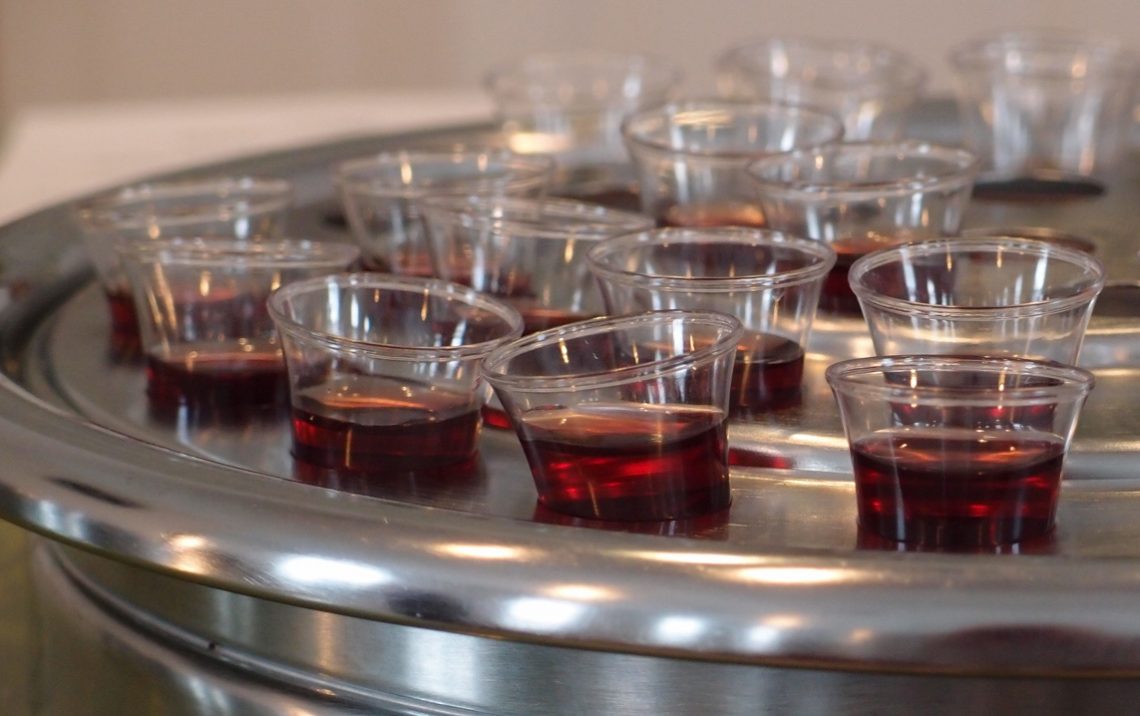

The Belief of the Moravian Church
With the whole of Christendom we share faith in God the Father, the
Son, and the Holy Spirit. We believe and confess that God has revealed
Himself once and for all in His Son Jesus Christ; that our Lord has
redeemed us with the whole of humanity by His death and His
resurrection; and that there is no salvation apart from Him. We believe
that He is present with us in the Word and the Sacrament; that He
directs and unites us through His Spirit and thus forms us into a
Church. We hear Him summoning us to follow Him, and pray Him to use us
in His service. He joins us together mutually, so that knowing ourselves
to be members of His body we become willing to serve each other.
In the light of divine grace, we recognize ourselves to be a Church
of sinners. We require forgiveness daily, and live only through the
mercy of God in Christ Jesus our Lord. He redeems us from our isolation
and unites us into a living Church of Jesus Christ.
Personal Belief
The belief of the Church is effected and preserved through the
testimony of Jesus Christ and through the work of the Holy Spirit. This
testimony calls each individual personally, and leads him/her to the
recognition of sin and to the acceptance of the redemption achieved by
Christ. In fellowship with Him the love of Christ becomes more and more
the power of the new life, power which penetrates and shapes the entire
person. As God’s Spirit so effects living belief in the hearts of
individuals, He grants them the privilege to share in the fruits of
Christ’s salvation and membership in His body.
God’s Word and Doctrine
The Triune God as revealed in the Holy Scripture of the Old and New
Testaments is the only source of our life and salvation; and this I
Scripture is the sole standard of the doctrine and faith of the Unitas
Fratrum and therefore shapes our life.
The Unitas Fratrum recognizes the Word of the Cross as the centre of
Holy Scripture and of all preaching of the Gospel and it sees its
primary mission, and its reason for being, to consist in bearing witness
to this joyful message. We ask our Lord for power never to stray from
this.
The Unitas Fratrum takes part in the continual search for sound
doctrine. In interpreting Scripture and in the communication of doctrine
in the Church, we look to two millennia of ecumenical Christian
tradition and the wisdom of our Moravian forebears in the faith to guide
us as we pray for fuller understanding and ever clearer proclamation of
the Gospel of Jesus Christ. But just as the Holy Scripture does not
contain any doctrinal system, so the Unitas Fratrum also has not
developed any of its own because it knows that the mystery of Jesus
Christ which is attested to in the Bible, cannot be comprehended
completely by any human mind or expressed completely in any human
statement. Also it is true that through the Holy Spirit the recognition
of God’s will for salvation in the Bible is revealed completely and
clearly.
Creeds and Confessions
The Unitas Fratrum recognizes in the creeds of the Church the
thankful acclaim of the Body of Christ. These creeds aid the Church in j
formulating a Scriptural confession, in marking the boundary of
heresies, and in exhorting believers to an obedient and fearless
testimony in every age. The Unitas Fratrum maintains that all creeds
formulated by the Christian Church stand in need of constant testing in
the light of the Holy Scriptures. It acknowledges as such true
professions of faith the early Christian witness: “Jesus Christ is
Lord!” and also especially the ancient Christian creeds and the
fundamental creeds of the Reformation.
(Note: In the various Provinces of the Renewed Unitas Fratrum the
following creeds in particular gained special importance, because in
them the main doctrines of the
Christian faith find clear and simple
expression:
- The Apostles’ Creed
- The Athanasian Creed
- The Nicene Creed
- The Confession of the Unity of the Bohemian Brethren of 1535
- The Twenty-One Articles of the unaltered Augsburg Confession
- The Shorter Catechism of Martin Luther
- The Synod of Berne of 1532
- The Thirty-Nine Articles of the Church of England
- The Theological Declaration of Barmen of 1934
- The Heidelberg Catechism
Moravian Traditions and Symbols